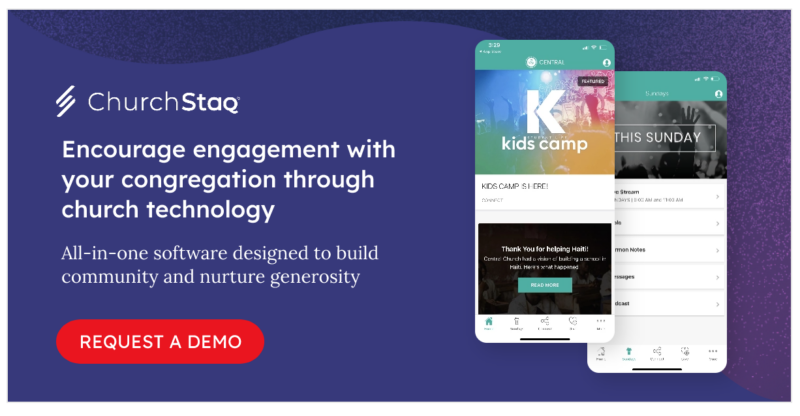Does Your Church Have an Inclement Weather Policy? (It Should)
If your church is located in an area with extreme weather patterns, you probably already have a clear inclement weather policy—even if things need to get pretty intense for you to make any drastic changes. For instance, a church in Fargo, North Dakota probably doesn’t close for anything short of four feet of snow.
But if you live in an area that only suffers from occasional lousy weather, it’s still important to have a weather policy. In the Pacific Northwest, we get a bad snow storm every couple of years that lasts a day or two. When it falls on a Sunday, a lot of churches scramble to figure out whether they should close and how to communicate the decision.
It’s a good idea to figure out a lot of that stuff ahead of time. Here are some suggestions for creating a policy that makes sense:
1. Consider potential problems
The first step is to think about potential weather problems that could arise. Do you need to have a plan for snow? Floods? Tornados? Wildfires? Think through scenarios ahead of time and figure out some plausible problems.
Don’t go crazy. If you’re in Seattle, you probably don’t need to figure out how you’ll respond to a hurricane, but you might want to think about what happens if there’s a Sunday morning earthquake.
2. Set guidelines ahead of time
It’s helpful to set some agreed-upon guidelines. If you get the occasional snowfall, it’s not a bad idea to decide how much snow would cause you to cancel a service. They may never cancel church for snow in Minnesota, but in places where people aren’t used to driving in it, they might choose to cancel a service after a foot of new snow.
It’s good to figure out what those guidelines are for your church. Here are some suggestions:
- If the local or state government has declared a state of emergency or people are being warned to stay off the road
- If the electricity is out
- If the furnace is out
- If most of your congregation lives in areas that won’t get plowed
3. Decide how to communicate closures
It doesn’t do any good to close the church because of dangerous road conditions if people don’t find out until they’re at your door. The last thing you want is people risking their safety to come to a service you’ve already canceled.
There are many ways you can contact people, but they should know where to go if there are any questions. That could mean posting an update on your website, but if there’s a power outage in your area, you might need some alternatives.
Here are some ways you can let your congregation know you’re canceling a service:
- Website
This is probably the first place people will go for information. If you can update the home page, it should be priority number one. - Church’s voicemail
The next thing people will likely do is call the church office. Creating a voicemail message alerting people to the closure is a quick and efficient way to let people know. - Push notification
If you have a church app, a push notification might be one of the best ways to alert people that you’re canceling a service. It will send a notification to everyone who has the app. - Email
A quick email to a church list can be a helpful (and relatively quick) communication backup plan. - Facebook
Posting on Facebook couldn’t hurt, but people will need to go to your page to find it. Less than two percent of the people who like your page are going to see your update organically, so you’d have to pay to boost the post to get the word out. Even if you don’t pay, it will still be helpful for people who intentionally check if there was a Facebook update. - Phone tree
You can set up a system that allows you to spread the information through a series of phone calls. This is helpful when it comes to alerting people in leadership of the closure, but it isn’t the most effective way to communicate with a 21st-century church.
A plan makes all the difference
Even if you never think you’ll have to cancel a service, it’s good to have a plan ahead of time. That way you know how you’re going to communicate the information if the unexpected happens.
If you’re interested in seeing how a church app could keep your community engaged and help you communicate quickly and efficiently in case of emergency, talk to an expert today.
Featured Content
You May Also Like


